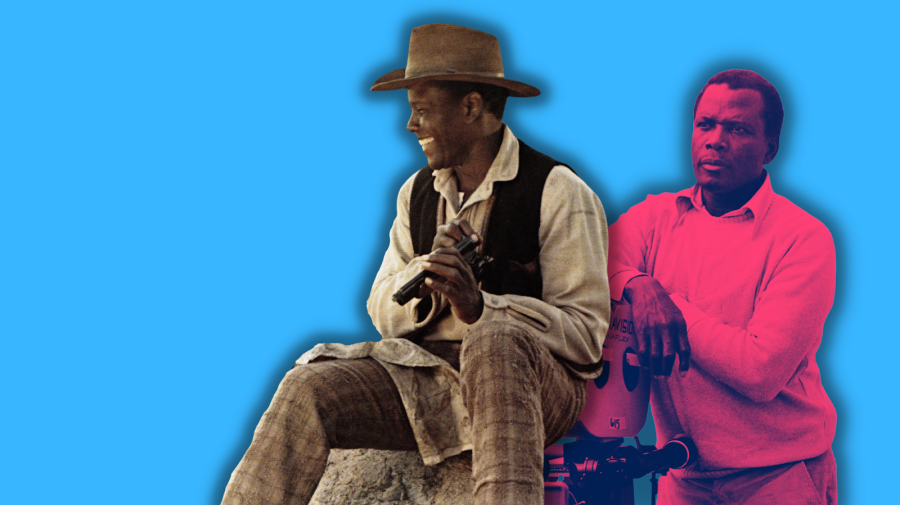
Sidney Poitier’s death earlier this year at the age of 94 marked the end of one of the great artistic lives in American history. Poitier was a Black movie star at a time when that was even more of a rare phenomenon than it is today. He was the star of some of the most important films of all time, including Stanley Kramer’s 1958 film The Defiant Ones (for which he won his first Best Actor Oscar) and 1961’s film adaptation of Lorraine Hansberry’s play A Raisin in the Sun. He went on to continue appearing as an actor in major films through the 1990s.
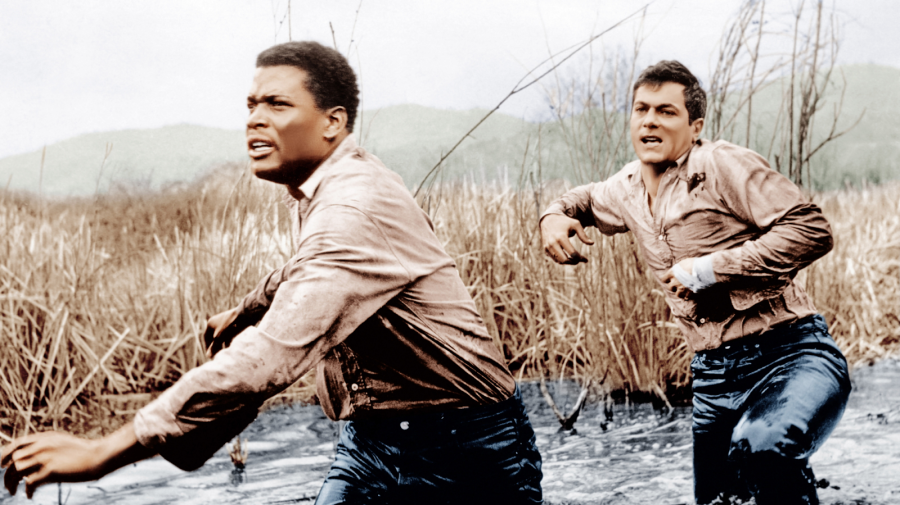
Poitier’s work as a director was less extensive and less well-known than his work as an actor, but still significant. Throughout the 1970s, he directed mostly comedies, which culminated with his work with Gene Wilder and Richard Pryor on 1980’s hugely successful Stir Crazy, the first film by a Black director to gross more than $100 million at the box office.
Perhaps his most interesting film as a director, however, was actually his first. In 1972, he made his directorial debut with a Revisionist Western called Buck and the Preacher. The movie features a wild, over-the-top performance by Hollywood legend Harry Belafonte as The Preacher, and beautiful performances by Poitier as Buck and Ruby Dee as Buck’s wife, Ruth. It’s also a searing commentary on the Civil Rights Movement through the context of the post-Civil War period in the American West.
Taking the Opportunity to Direct
Before the 1970s, films directed by Black filmmakers were incredibly rare. Oscar Michaux and, later, Spencer Williams directed many films between 1919 and 1948, all of which were classified as “race films”: movies made by Black filmmakers for Black audiences during the Jim Crow era. In terms of popular films though, it really wasn’t until 1971 — when Gordon Parks directed Shaft and Melvin Van Peebles directed Sweet Sweetback’s Baadasssss Song — that Black directors were making movies that were getting a chance to be seen by larger audiences.
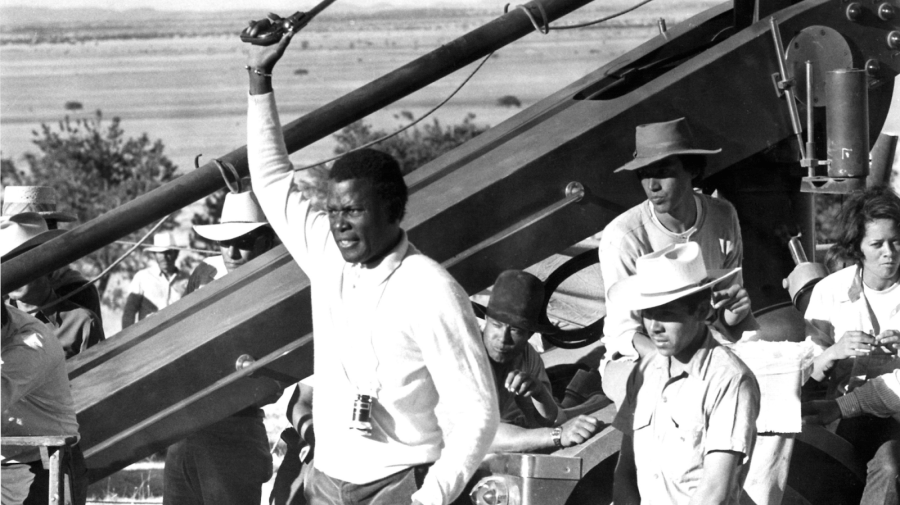
In this context, Poitier’s direction of Buck and the Preacher is so important. Harry Belafonte produced the film, and he and Poitier initially hired director Joseph Sargent, but Poitier quickly took over when the film wasn’t moving toward his vision for it. That vision was to create something that would allow a Black audience to see in it “a certain substance, a certain nourishment, a certain complement of the self.”
Despite reviews at the time like the one from Vincent Canby in the New York Times, which called it “a perfectly ordinary example of the kind of Western that seeks to prove that the West was not lily-white,” Buck and the Preacher has held up to the test of time as one of the rare examples of a Western that was anything but ordinary. It possesses a rare combination of gravitas and humor that allows it to remain relevant over the years.
Classic Performances from Major Stars
The fact of the matter is that while Sidney Poitier, Harry Belafonte, and Ruby Dee were all major stars, the roles they played in this movie were rare opportunities for Black actors in Hollywood. Buck and the Preacher is a story about a fight against oppression — as so many great stories are — and its characters stand in profound relief against that backdrop. They are heroes.
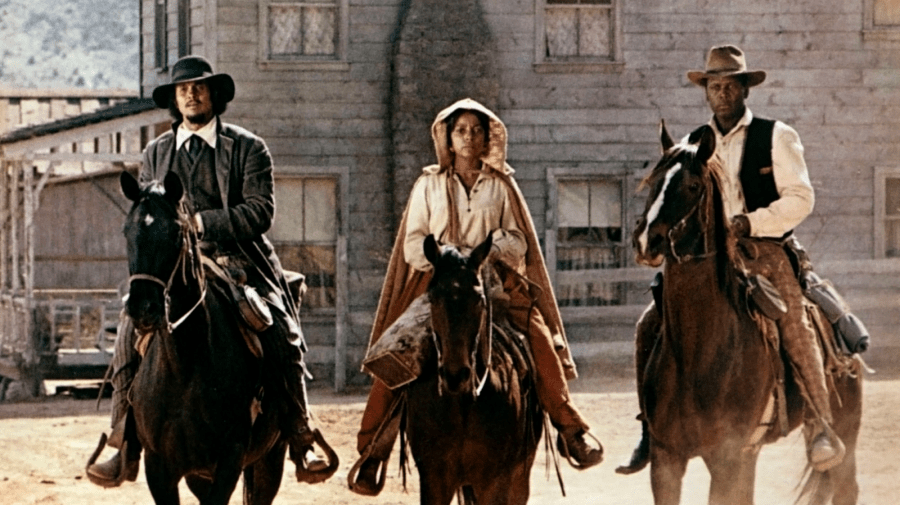
Poitier’s Buck is the classic hero in the tradition of famous Western actors like Tom Mix and Randolph Scott. He’s staid and tall and always does what’s right. Like those actors from traditional Westerns, but in a different context, Poitier plays Buck with a kind of humility and exhaustion that is so powerful to watch. We feel his history of dealing with the violence of the dominant, white culture; we read it on his face.
Belafonte’s Preacher is an entirely different kind of character. It’s the more overtly exciting role. We are introduced to him as he’s naked in a river, bathing with his cowboy hat on, and he’s all smiles and mischief. A liar with a heart of gold, bumbling his way into eventually doing what’s right.
Maybe the most important performance, in the end, is Ruby Dee’s as Buck’s wife, Ruth. I watch lots of Westerns; I’ve been a fan of the genre, warts and all, for as long as I can remember. Black characters in these movies, especially when they are women, are so often afterthoughts, portrayed — at best — as helpless against the evil world around them. At worst, they are literally ignored. Ruby Dee’s performance, though brief, is so much more than that. When she tells Buck that the racism around them is “like a poison, soaked into the ground,” it resonates long after the movie is over.
Why Buck and the Preacher Still Matters
Buck and the Preacher would stand as a significant film just for being Sidney Poitier’s first effort as a director, but it deserves our attention now for so many other reasons. The popularity of recent revisionist Westerns like Power of the Dog is a reminder that the setting of the West — with its possibilities for interrogating our ideas about freedom and expansion — is as relevant as ever in Hollywood.
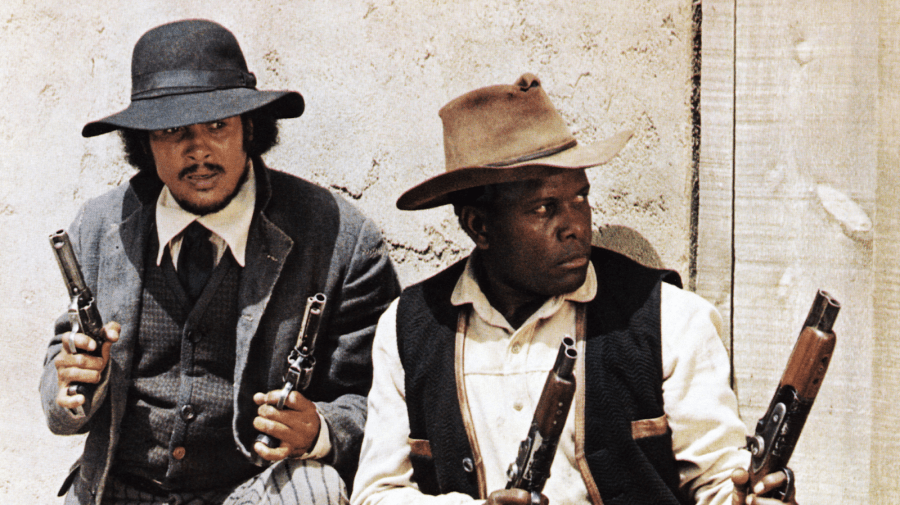
More than that, a recent film like Jeymes Samuel’s The Harder They Fall specifically harkens back to the legacy of Buck and the Preacher — a movie that found an audience by treating with seriousness and style the topic of race in the Western genre. In a way, all Westerns have at their core the idea that we might learn something about contemporary themes by placing them in a different time and place.
Buck and the Preacher is no different. It took the concerns of the Civil Rights Movement and reminded its audience that those concerns go back to the Civil War and beyond, to the birth of the country itself. It’s a movie about people trying to survive in the face of a culture that uses oppression to hold on to what it has.
At one point, one of a gang of white men pursuing Buck specifically says that the freedom of Black Americans is the cause of “a whole way of life going down the drain.” It’s horrifying to hear it put so bluntly, and that’s exactly what is so important about it. Sidney Poitier’s Buck and the Preacher is a movie that never flinches; 50 years after it was released, it’s still worth your time.

 Seth Landman
Seth Landman




